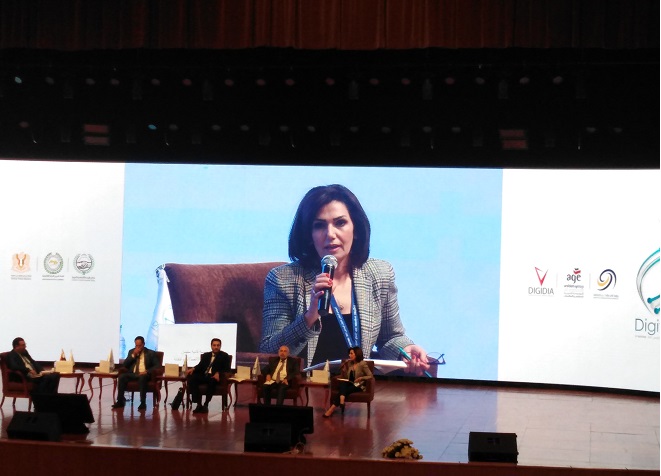On the sidelines of the conference Syriatimes interviewed Engineer Fadia Soliman, Assistant Minister of Communications and Technology and asked her about the conference.
Syria Times :”How does digital transformation help reduce the negative impact of shadow economy on the national economy?”
Soliman answered” Shadow economy formed a large percentage in Syria, whether as small businesses or individuals.
 Digital transformation is a way to integrate shadow economy into the national economy, so they together form financial inclusion. That way, we will have positive aspects through stimulating financial operations and electronic payment.
Digital transformation is a way to integrate shadow economy into the national economy, so they together form financial inclusion. That way, we will have positive aspects through stimulating financial operations and electronic payment.
When we have stable databases on the volume of transactions in the economy, we can develop a national plan for cooperation with the government that provides facilities for participants in the shadow economy through financing and tax exemption, or providing them to companies to display their products, market them, support them and motivate them.
An example of this is most of the software and application industry takes place in the shadow economy, during which engineers manufacture and develop electronic applications and sell them locally or internationally.
When the participants in the shadow economy join the national economy, they can obtain social and health security.”
Syria Times:” What is the Ministry of Communications and Technology’s plan on the mechanism of implementing digital transformation with the rest of the ministries?”
The plan is currently submitted to the Presidency of the Council of Ministers to set up electronic programs in various ministries through an office specialized in electronic programs in each ministry so they coordinate together to reach stable results and evaluate the work of the outputs of this data to see the results of the developed plan whether it achieved the desired goals or not.
Reported by Sanaa Hasan

